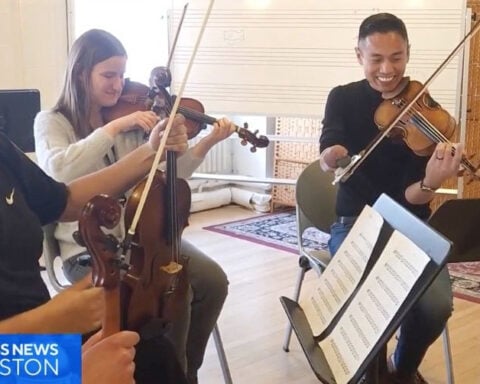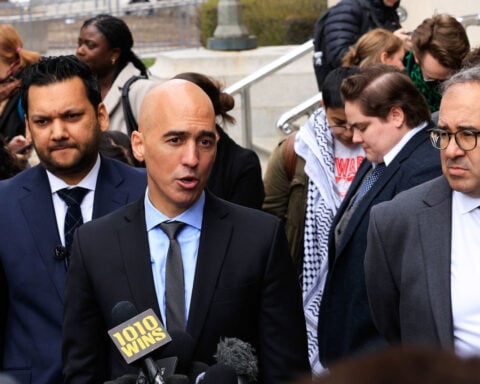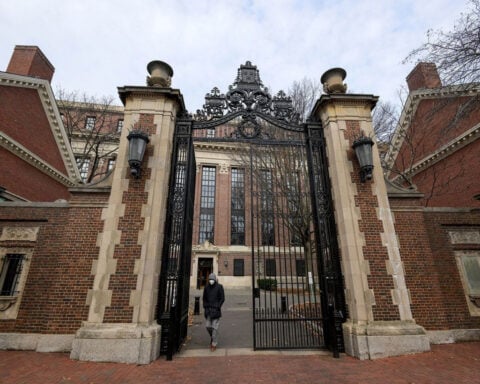The fate of hundred of millions of dollars in scholarship money is up in the air in Ohio after seven state universities put race-conscious programs on hold to check their legality. The review comes after Dave Yost, the state’s attorney general, advised administrators in a call that using race as a factor to award funds may be unconstitutional.
Yost’s guidance was based on the U.S. Supreme Court’s June 2023 decision in Students for Fair Admissions v. Harvard, which banned consideration of a student’s race in college admissions, except under limited conditions.
Yost’s interpretation of the court’s opinion should not have been a surprise. The day after the Supreme Court’s decision, he had signaled that schools should clamp down on race-conscious programs. He warned that “disguised” race-conscious admissions policies are still race-conscious admissions policies.
Targeting racial criteria
Although Ohio did not consider race-conscious scholarships right after the Supreme Court decision came down, other states acted quickly to place such scholarships on the chopping block. Missouri’s attorney general immediately banned the use of race in financial aid decisions. Officials at the universities of Kentucky and Missouri eliminated consideration of race in scholarships and grants.
This raises a question that goes beyond Ohio: Are scholarships that use race as part of their criteria a thing of the past? The short answer is “no.” But based on a review of the 2023 Supreme Court decision and other precedent, such programs will have to pass a tough judicial test. Even then, race can’t be the only factor.
Campus leaders have some guidance on what to do. In August 2023, for example, the federal departments of Justice and Education provided advice on how schools could keep a diverse student body without considering race in admissions decisions. Factors such as socioeconomic status, ZIP codes, high schools attended, academic achievements and demonstrated contributions to society could become more important in admissions decisions.
But the federal agencies were silent on how the court’s ruling would affect scholarships and financial aid. To figure that out, administrators may have to go back to the source: the 2023 Supreme Court decision.
Diversity and the ‘strict scrutiny’ test
When the Supreme Court reviewed the admissions programs at Harvard and the University of North Carolina, it used a strict scrutiny standard, the highest level of legal review under the 14th Amendment’s equal protection clause. To pass muster, rules or laws that affect fundamental rights must serve a “compelling state interest” and be written to minimize their effect on such rights.
In 2003 and again in 2016, the court ruled that a diverse student body is a compelling interest. But in 2023, Harvard and UNC weren’t able to pass the strict scrutiny test. Both schools claimed their programs promoted diversity.
The court ruled that the universities’ race-conscious admissions programs involved racial stereotyping, lacked “sufficiently focused and measurable objectives warranting the use of race” and “unavoidably employ race in a negative manner.”
The programs violated both the equal protection clause of the Constitution and Title VI of the Civil Rights Act of 1964. Title VI bars discrimination based on race, color, or national origin in programs or activities that receive federal assistance, such as student loans and Pell Grants.
Some legal scholars, not unreasonably, say the court’s decision bans the use of race in awarding scholarships, as well as in admissions. But this overlooks two important facts: The Supreme Court did not rule that diversity can never be a compelling state interest or that race can never be considered.
True, the use of race in many programs receiving federal assistance is now restricted, but it has not been completely outlawed. Even race-conscious admissions aren’t completely off the table – if programs can pass the strict scrutiny test. Consideration of a student’s race might be allowed if there is “an exceedingly persuasive justification that is measurable and concrete enough to permit judicial review,” the court said.

The use of race in college admissions has been mostly outlawed, but not entirely.
For example, the Supreme Court OK’d race-based policies at U.S. military academies on the theory that a strong national defense – a compelling state interest – requires a diverse officer corps. But after the Harvard and UNC decision, even these programs will need to explore other ways to achieve diversity.
Strategies for diversity in admissions that don’t take race into account, like those suggested by the departments of Education and Justice, can serve as a guide for school administrators. MIT and Stanford Law are among the programs already using criteria such as income, ZIP code and civic engagement to maintain diversity.
More challenges ahead
The use of race in scholarships and admissions is just one legal challenge race-conscious programs face. In July 2023, 13 state attorneys general – from Alabama, Arkansas, Indiana, Iowa, Kansas, Kentucky, Mississippi, Missouri, Montana, Nebraska, South Carolina, Tennessee and West Virginia – sent a letter urging Fortune 100 CEOs to eliminate all such programs at their companies.
Critics of these programs also questioned the use of race in scholarship and financial aid programs funded from outside a university, including fellowships that consider race when helping underserved students.
In contrast, some campus leaders and lawyers argue that the court’s decision should be limited to race-conscious admissions. They argue it should not include other programs where race might be used as a factor.
Tips for prospective students and their parents
Students who want to improve their chances of obtaining scholarships can start by considering the list of permissible criteria for admissions decisions and follow up with their own research. Students can also take the following steps:
• Stay informed: Follow the news to find out whether changes in state laws or policies will affect scholarship opportunities.
• Talk to financial aid administrators: Connect with advisers in the school’s financial aid office to learn how they interpret the Harvard/UNC decision.
• Don’t rely exclusively on financial aid from the college: Investigate and apply for scholarships and financial aid that are not administered by a college. The Supreme Court decision applies only to institutions that receive public funds.

The authors do not work for, consult, own shares in or receive funding from any company or organization that would benefit from this article, and have disclosed no relevant affiliations beyond their academic appointment.
Source: The Conversation

 Trump has begun another trade war. Here's a timeline of how we got here
Trump has begun another trade war. Here's a timeline of how we got here
 Canada's leader laments lost friendship with US in town that sheltered stranded Americans after 9/11
Canada's leader laments lost friendship with US in town that sheltered stranded Americans after 9/11
 Chinese EV giant BYD's fourth-quarter profit leaps 73%
Chinese EV giant BYD's fourth-quarter profit leaps 73%
 You're an American in another land? Prepare to talk about the why and how of Trump 2.0
You're an American in another land? Prepare to talk about the why and how of Trump 2.0
 Chalk talk: Star power, top teams and No. 5 seeds headline the women's March Madness Sweet 16
Chalk talk: Star power, top teams and No. 5 seeds headline the women's March Madness Sweet 16
 Purdue returns to Sweet 16 with 76-62 win over McNeese in March Madness
Purdue returns to Sweet 16 with 76-62 win over McNeese in March Madness








